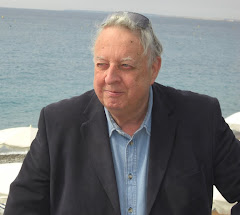For some 74½ years,
Joseph Haydn and I have been merely on cool nodding terms.
Bach and Handel, for me. Then Mozart, Beethoven and Schubert. I knew
of Haydn, and had a (very) few of his works. Never played a note of
his music on my violin. I knew he wrote 104 symphonies and around 90
string quartets. In my youth, I had a recording of his “Oxford”
symphony (on the second side on an LP that I bought because of the
Mozart symphony on the first side).
A few weeks ago, having
listened by chance to a couple of Haydn's string quartets during my
string quartet phase, all that changed. Into my post box thunder
recordings of Haydn's symphonies and string quartets; a biographical
tome of Haydn is in the post somewhere. Haydn and I are in business.
As with the music of Handel, I now welcome Haydn's lack of emotional
complications, exquisite craftsmanship, admirable powers of invention
using limited resources. I took to the string quartets recorded by
the Takacs Quartet; discovering in my archives a recording of three Haydn quartets played by the Quatuor Mosaïques, I found
myself really liking the lightness and transparency of the playing –
doubly surprising, since it is an “original instrument” quartet, a
concept that usually sees me fleeing the room as violins play long
notes without any vibrato in sight (in the mistaken belief that this
sounds “better”; which it does not). Anyway, the playing of the
Quatuor Mosaïques appears to suit Haydn's quartets admirably, and a
10 CD box of Haydn quartets from the Mosaïques is on its way to me
via the postal service. I love string quartet playing where I can
hear each of the four instruments, as opposed to a general sound
mush.
Again in my archives, I
discovered a box of eight Haydn symphonies, recorded in the early
1960s by Otto Klemperer and the Philharmonia. Not to be
outdone, I then ordered two boxes each of six Haydn symphonies recorded by
Thomas Beecham and the RPO in the very late 1950s. The two
sets of recordings complement each other perfectly: Beecham stylish
and light of touch, Klemperer with the better orchestra and
recording, with typical forward woodwind band and transparency of
sound and structure. It's a good time for those collecting
recordings, since all these older recordings are now available for
less than the cost of a bottle of wine. Critics will wince at
Klemperer and Beecham in Haydn – it's all a question of editions of musical
scores that are too old, and orchestral sounds that are not old
enough, it appears. But critics seem rarely to listen to music simply to
enjoy it. I'll spend many happy months to come with Otto, Thomas,
Takacs and Mosaïques. And Joseph Haydn. Maybe after another 74½
years I'll be extolling the virtues of Arnold Schönberg and Luigi
Dallapiccola? Probably best not to take bets on it.

No comments:
Post a Comment